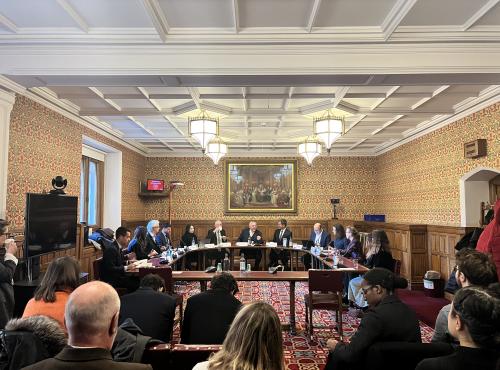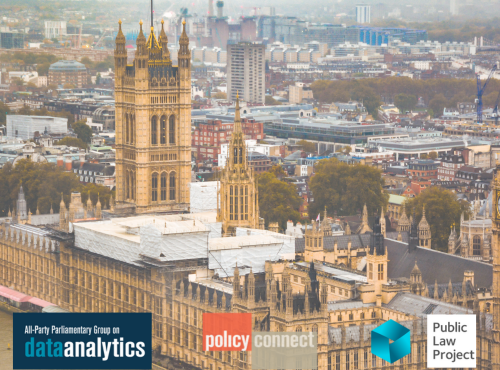Policy Connect and Understanding Patient Data host webinar on the future for health data partnerships
On 29th October 2020, the APPG for Data Analytics was delighted to partner with Understanding Patient Data (UPD) and the All-Party Parliamentary Health Group (APHG) to host a webinar into the opportunities and ethical concerns associated with the use of medical data.
The discussion builds upon a report by UPD launched in March 2020, which considered public attitudes to the sharing of NHS-held medical data by third parties.
The webinar was chaired by Lord Hunt of King’s Heath, the former Chair of the NHS Confedertation, and included contributions from:
- Dr Natalie Banner: Lead, Understanding Patient Data
- Dr Murat Soncul: Head of Privacy and Data Protection, Cabinet Office, Government Digital Service
- Chris Carrigan: Associate Member, useMYdata
- Pauline L'Hénaff: Senior Consultant, Open Data Institute
- Simon Madden: Director of Policy & Strategy, NHSX
The webinar began with a presentation on the findings and outcomes of Understanding Patient Data by Dr Banner. She noted the findings of the report, which emerged out of a national survey into the use of medical data from citizen juries as well as a nationwide survey. She also highlighted the on-going impact of COVID-19 and the importance of sharing accurate and up-to-date information to combat public health crises.
Following Dr Banner’s presentation, the webinar opened to responses from the rest of the panel. Some of the key themes from the discussion are noted in a blog from Understanding Patient Data.
- Be open about private sector involvement: The inclusion of private sector bodies has been a concern by the public for as long as the NHS has existed. This tendency has only increased in recent years as personal information has become increasingly digitised. However, the panel noted numerous occasions where partnerships between the public and private sectors can have real and tangible benefits to society, but it is vital that these arrangements are made clear to the public as soon as possible.
- A “whole NHS” approach to data partnerships: A number of contributors, including Pauline L’Hénaff of the Open Data Institute, called for a more effective sharing of best-practice and better integration into the use of data across the sector.
- Involve people in decisions: The report particularly noted the importance of including members of the public in developing policies regarding the sharing of patient data. Simon Madden of NHSX, the health service’s body for developing improving the user experience via data-driven technologies, emphasised the importance of the project, and added that the public would be included in the work of NHSX and other bodies in an on-going period.
- Effective communications: All speakers and many members of the audience agreed on the importance of improving how the public are informed about data partnerships, how they are developed, and the opportunities that they provide to improving health and policy outcomes. Effective communications are the key to informing the public and combating misconceptions about how medical data is being used across the healthcare sector.
Following the webinar, Policy Connect and Understanding Patient Data will be following-up on the issues raised. We are looking forward to engaging with Lord Bethell, as Minister responsible for innovation and data in at the Department for Health and Social Care, as well as contribution to the forthcoming National Data Strategy.





